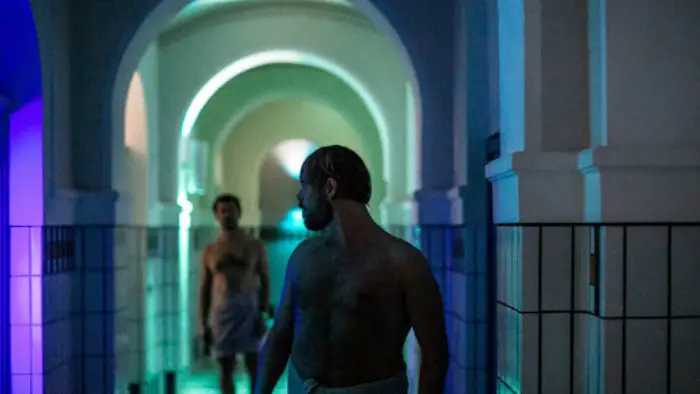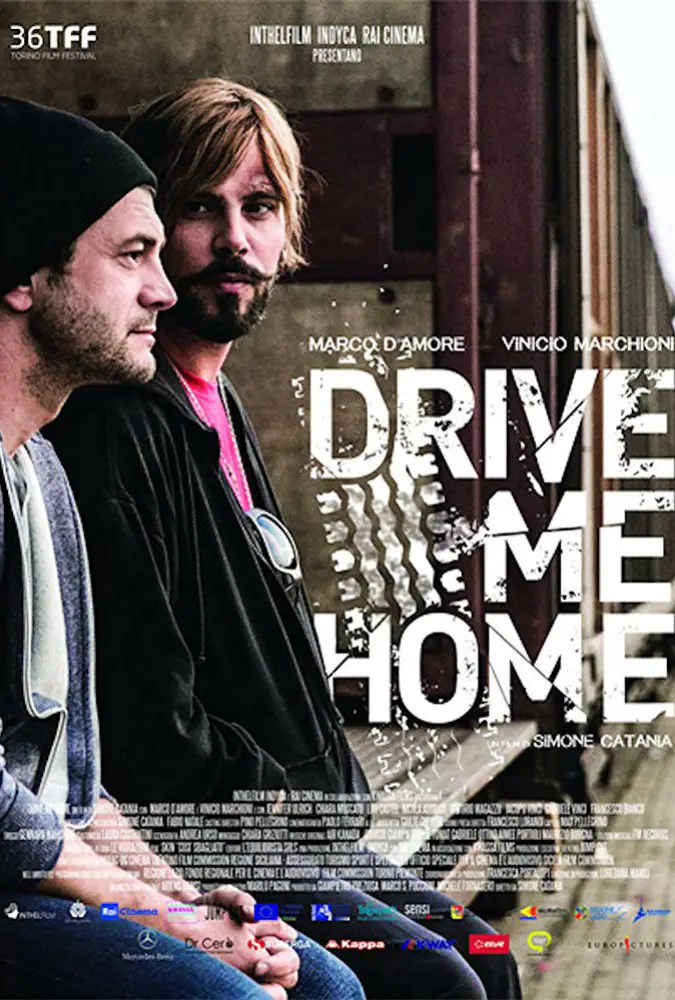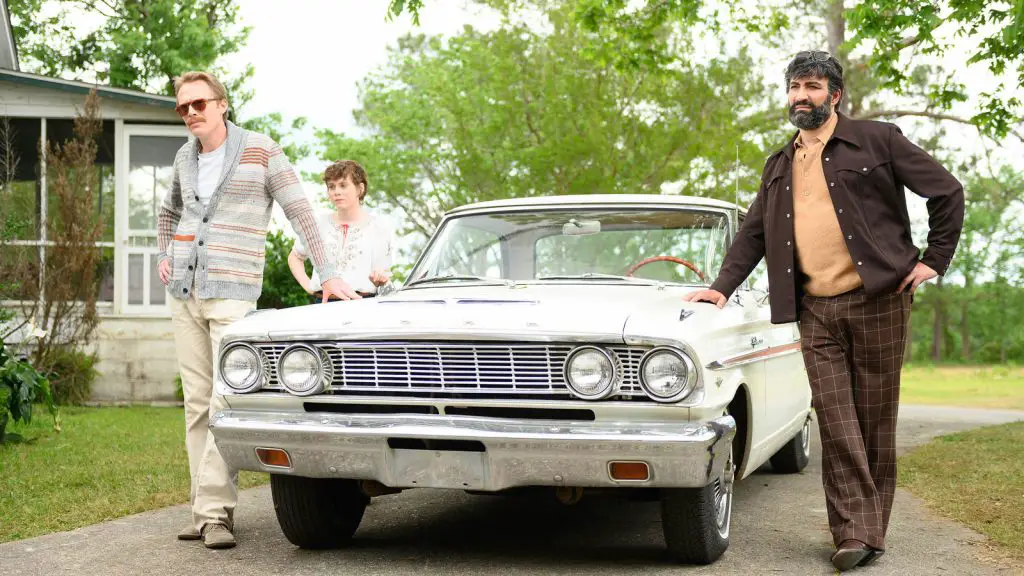
Its interest in LGBT-related themes aside, Drive Me Home also turns Antonio and Agostino’s relationship into an allegory about globalization. Catania associates the initial frostiness between Antonio and Agostino with a hyper-modernized and urbanized society in which people lack any definite sense of purpose or identity. Antonio and Agostino’s more intimate moments, meanwhile, are associated with Sicily, which is depicted as a remote rural paradise where human connection is prized over economic and technological progress.
It would be unfair to say that Drive Me Home is a bad film. The film mostly makes for a pleasant watch, and even though it hews to many tropes of the road trip genre, it has enough narrative twists that it’s never completely predictable. Moreover, Catania deserves some kind of praise for his sincere interest in issues like globalization and sexuality. That sincerity is enough that the movie may even leave you somewhat touched.

“…sincere interest in issues like globalization and sexuality.”
Ultimately, however, this is a film that you’ll forget about instantly. The main reason why Drive Me Home won’t last longer in your memory than its credits is that the film often feels rather superficial. For all his earnestness, Catania frequently falls back on what you could call “arthouse film clichés” – masculine men who can’t express emotions, impersonal urban zones with overcast skies, and so on. Far from interrogating or fleshing out these clichés, Catania accepts them at face value, and even as you appreciate his sincerity, you’ll likely find his direction to be somewhat obvious.
Normally, I’d say something here about how the actors redeem or save the film. But in this case, that doesn’t quite hold true. Marchioni and D’Amore press all the right buttons, to be sure. They act emotionally repressed for most of the film, launch into angry monologues when the narrative demands it, and eventually reveal vulnerability during their characters’ final reconciliation. But there’s nothing in their acting that surprises you. Their performances are good but uninspired. That description could just as easily apply to Drive Me Home as a whole.

"…Ultimately, however, this is a film that you’ll forget about almost instantly."



DRIVE ME HOME turned out to be much better than the lack of reviews would lead one to believe. Perhaps because the film’s mostly in Italian and German (with English subtitles). Perhaps because understanding the very deep bond between two boys who through no fault of their own wound up being separated for some 15 years – explaining what transpired in between relies on brief flashbacks and the ability to read each actor’s emotions when such flashbacks occur. Yes, the two friends at an early age became sexually intimate. Yes, they each wanted to build a moat around an imaginary castle where they’d be together forever. One confessed his love for the other to his father, who was the Mayor of a small Sicilian town. His father’s reaction was to beat him and then plan to send him off to school in Switzerland. He ran away. When the other went in search of his friend, he was only told that his friend was now in school in Switzerland. He felt betrayed, abandoned, without even a goodbye. Fifteen years passes. The runaway son becomes a a truck driver – gay, having lost his seven-year lover who fell for another. The other has moved from city to city across Europe. He’s a waiter by trade and perceives his sexual identity to be straight. The times are tough for him, monies short, and his father’s farmland is about to be seized by the state (read the father and Mayor who renounced his friend when he confessed to being gah). Having no one else to turn to, the waiter searches out his long lost friend – a task that proves difficult because his friend fears that the waiter will be ashamed of him. The two do find each other and that’s where a long journey by truck across much of Europe begins. The two old friends are ecstatic to see each other and begin unravelling just what has and is happening with each other. Their reunion’s both playful and, at times, extremely painful for each other. Visually, the films exquisite. Without giving away the ending, suffice it to say that it’s happy. It seems unlikely that the two will ever be more than friends but the bond between them has been forged in fire. Both are changed by rediscovering the truth about what had happened after they were separated. The film proves that not only is it possible for a gay male to love a straight male and vice versa, but that dealing with past trauma and present crises can be slow – but a love that’s heartfelt and pure can evolve. It’s family. Really believe that DRIVE ME HOME has been treated unfairly by film critics.